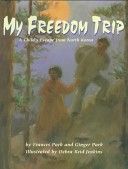
The story of a young girl’s escape from North Korea, based on the life of the authors’ mother.

The story of a young girl’s escape from North Korea, based on the life of the authors’ mother.
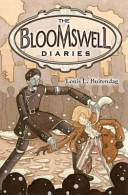
Benjamin Bloomswell is pleased to be staying with his uncle in America while his parents are off on another business trip. Its like a vacation. But when a series of newspaper articles, telephone calls and mysterious disappearances result in his being sent to and having to escape from a sinister orphanage and the criminals who run it, he knows he’s somehow got to find a way back to Europe. He has to get to his sisters boarding school before anyone else does. And somehow, he has to find his parents, who are also in trouble. But how…

Rescued from certain death by a kindly dog at the city dump, an abandoned puppy grows up fending for himself until he finds a home with a willful little girl. Could she be the mistress of his dreams?
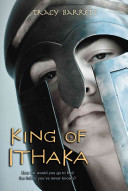
Telemachos has a comfortable life on his small island of Ithaka, where his mother Penelopeia keeps the peace even though the land has been without its king, his father Odysseus, since the Trojan War began many years ago. But now the people are demanding a new king, unless Telemachos can find Odysseus and bring him home. With only a mysterious prophecy to guide him, Telemachos sets off over sea and desert in search of the father he has never known.
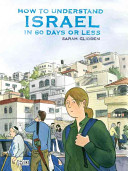
When Sarah Glidden took a “Birthright Israel” tour, she thought she knew what she was getting herself into. But when she got to Israel, she found that things weren’t quite so simple. HOW TO UNDERSTAND ISRAEL is Sarah’s memoir not only of her Israeli government sponsored trip through Tel Aviv, Jerusalem, the Golan Heights, Masada and other famous locations, but of the emotional journey she never expected to take while she was there. Her experience clashes with her preconceived notions again and again, particularly when she tries to take a non-chaperoned trip into the West Bank. Sarah is forced to question first her political beliefs and, ultimately, her own sense of identity, until she finds that to understand Israel she first must come to understand herself.
Sensei Ki-yaga leads Niya and the other students of the Cockroach Ryu on a journey to beg the feudal Emperor to stop war from breaking out between the mountain ryus, putting to the test the firm friendship and unusual skills of these physically-disabled samurai-in-training.
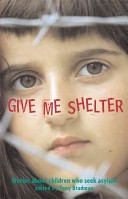
The phrase “asylum seeker” is one heard in the media all the time. It stimulates fierce and controversial debate, in arguments about migration, race, and religion. The movement of people from poor or struggling countries to those where there may be opportunities for a better life is a constant in human history, but it is something with particular relevance in this time of wide-scale political and social upheaval. Featuring stories from youth based in trouble spots around the world — including Kosovo, Ethiopia, Vietnam, Eritrea, Zaire, Sudan, Somalia, Iraq, Zimbabwe, and Kurdistan — this collection of stories spotlights people who have been forced to leave their homes or families to seek help and shelter elsewhere. This book has no political axe to grind, simply recording the truth of these children’s stories without assigning blame. Some are about young people traveling to other countries; others are concerned with young ones left behind when parents are forced to flee. These are stories about physical and emotional suffering but also about humanity — of both those who endure unimaginable hardship and those who help them.
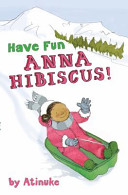
Anna Hibiscus lives in Africa. Amazing Africa. But she is spending Christmas with her granny in Canada. She cant wait to see snow for the first time! And how will it feel to be so far from home?
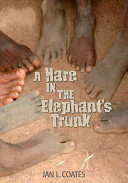
In the little village of Duk Padiet in southern Sudan, a boy named Jacob Deng thrives on the love of his mother, the companionship of his sisters, the excitement of learning how to look after his uncle’s herds of cattle. The year is 1987, and suddenly in the night soldiers from the north invade the village, looting, burning, and killing. The war has arrived, and the life of Jacob will never be the same. This novel is based on the real life experiences of a Sudanese boy who, with thousands of other boys from the region, fled for his life and spent seven years walking through deserts, grasslands and forests, crossing crocodile-infested rivers, surviving life in massive refugee camps. The so-called Lost Boys of Sudan – as they were called by an American aid organization – numbered as many as 27,000, and while many died – from starvation, attacks by wild animals, drowning, or through the brutality of the military – many survived. Jacob never returned to his village, but though he was only seven years old when he had to flee, he somehow managed to live through an almost unimaginable ordeal. Throughout the seven years covered in this story, Jacob resists the temptation to join the liberation army. Steadily Jacob finds himself more and more adhering to his mother’s advice that getting an education is crucial to escaping the cycle of violence that afflicts his country. Jacob’s struggle, then, is to persist in seeking out teachers and eventually a school where his ambition to learn about the world can be met. Through it all he learns about loyalty and love for close friends who have been thrust together with him on this extraordinary journey, and also about the guiding light provided by the memory of his mother.
See the review at WOW Review, Volume 4, Issue 2
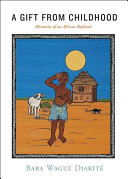
Baba Wagué is only four years old when he is sent to the tiny Malian village of Kassaro to be raised by his paternal grandparents, according to the family tradition. He is most unhappy about this at first, but under his grandmother’s patient and wise tutelage he comes to love his close-knit village community. He learns how to catch a catfish with his bare hands, flees from an army of bees, and mistakes a hungry albino cobra snake for a pink inner tube. Finally, Grandma Sabou decides that Baba is educated enough to go to school, and he moves back to the city, where his family struggles to provide him with a formal education. But he brings his village stories with him, and in the process of sharing them with his neighborhood uncovers his immense artistic and storytelling talents.